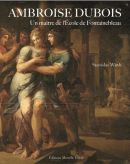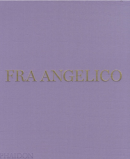> Catalogue
AMBROISE DUBOIS : UN MAÎTRE DE L'ÉCOLE DE FONTAINEBLEAU
- AuthorStanislas Wirth
- PublisherMonelle Hayot
- Date of publicationSeptembre 2022
- Language(s)French
- IllustrationsColour, b&w ill.
- Pages368
- DescriptionHardback
- Price (VAT incl.)75.00 €
- AvailabilityShipping within 48 hours
The taste for ancient art developed in France during the reign of Francis I, and led to the advent of an artistic movement without precedent in the kingdom, which developed during the decorative works of the Château de Fontainebleau, directed by Rosso Fiorentino and then by Primaticcio. These two Italian artists participated in the creation of a new style, an elegant and sensual art, with elongated forms and a profusion of ornamentation: the School of Fontainebleau.
In 1594, King Henry IV re-launched work at the Château de Fontainebleau, where Ambroise Dubois began the execution of his first major decoration, the Galerie de la Reine, in 1600. The Dutch artist is one of the few painters from the turn of the 17th century whose paintings are preserved today; the painted work of the other artists of the Ecole de Fontainebleau has mostly been destroyed.
Based on original archival documents - of which a new analysis has made it possible to propose new dates of birth and death - this monograph offers a new study of the life and work of Ambroise Dubois. It clarifies the painter's position in the social and professional game in Paris and Fontainebleau at the time, in order to better appreciate the successful insertion of this painter, initially foreign and unknown, into the French artistic landscape under Henri IV and Marie de Médicis.
Price (VAT incl.) : 75.00 €
We also recommend
LES CHOSES : UNE HISTOIRE DE LA NATURE MORTE...
FRA ANGELICO...
DRÔLES DE TÊTES : RUBENS, REMBRANDT ET VERMEER...
FIGURES DU FOU DU MOYEN ÂGE AUX ROMANTIQUES...











